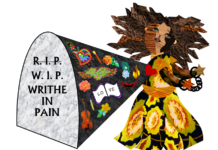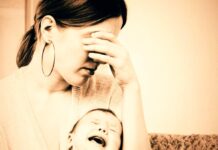Childhood Gaslighting: When Difference Receives a Diagnosis
Aside from the home, school is typically where we learn our worth or lack of it. We learn what we are taught, and how we are taught is often what we are taught.
To Minimize Medication Withdrawal, Taper Slowly
From Psychiatric News: “There is an urgent need to develop official guidelines for how to safely taper psychotropics”—for both patients and physicians, says Mark Horowitz, MD.
RIP: Ed White – Advocate, Researcher and Supporter
It is with great sadness that we write about the loss of one of our colleagues from the psychiatric drug withdrawal community; Doctor Ed White.
Postpartum Anxiety, Psychiatric Drugs and Paternalism
My postpartum anxiety diagnosis became subsumed by an arbitrary diagnosis of depression. And this diagnosis has followed me for 30 years and counting.
Restoring ‘Respect & Dignity’ to 777 Souls Who Died at Delaware Psych Hospital
From WHYY: "When you see it for the first time, it stuns you, but that’s the way these people were regarded...There’s no names there. Just these little blocks with numbers," said Dennis O'Connell, whose grandmother is buried there.
RIP: Scottish Psychiatric Survivor Activist Chrys Muirhead
When Mad in America was launched nearly a decade ago, Scottish psychiatric survivor and activist Chrys Muirhead was one of the first bloggers on our site.
NGRI: The Gilligan’s Island of the Criminal Justice System
I approached the NGRI system with the belief that my commitment would be short and sweet and that in less than one year I would be back to living in the community. That year turned into nearly two decades.
Anatomy of an Industry: Commerce, Payments to Psychiatrists and Betrayal of the Public Good
Pharmaceutical companies paid psychiatrists $340 million from 2014 through 2020, corrupting every aspect of the testing and marketing of new psychiatric drugs.
Honoring Jane Whittington: 1950-2021
It’s with great sadness that I am writing of the sudden and unexpected passing of my former husband and best friend Jane.
NC Lawmakers Seek Non-Police, Community Interventions to Mental Health Crises
From North Carolina Health News : State lawmakers have introduced a package of mental health bills that would provide alternative interventions, such as non-police crisis response units and more peer-support organizations.
Tackling the Growing Problem of Overmedication
From Knowable Magazine: Every day, 750 older adults are hospitalized due to serious side effects from medications, including falls, allergic reactions and internal bleeding. And with each additional medication prescribed, the risk of an adverse reaction increases by 7 to 10 percent.
Soteria Past, Present, and Future: The Evidence For This Model of Care
From Soteria Network: Robert Whitaker explains the success of Soteria houses and why they are such an important initiative in helping people recover from psychosis and get their lives back.
ISEPP to American Psychological Association: Condemn Forced Treatment
The International Society for Ethical Psychology and Psychiatry petitions the American Psychological Association to condemn forced treatment as a human rights violation
Inner Experience: From James Hillman’s Archetypal Psychology Towards a Liberation Psychology
From Acid Horizon: In this podcast, MIA Science News writer Micah Ingle discusses the work of archetypal psychologist James Hillman and its implications for anti-capitalist politics and other forms of activism.
Psychiatric Drugs Increase Suicide. CAMPP’s Film “Prescripticide” Exposes the Harms
“Prescripticide”: The purpose of this informational video is to raise public awareness of this association between psychiatric drugs and violence/suicide.
Mikhaila Peterson Podcast: The Dangers of Psychiatric Medication
From Mikhaila Peterson: Mikhaila interviews Drs. Jim Wright and David Cohen on the reality behind psychiatric medications like the ones that nearly destroyed her and her father's lives.
The WHO Calls for Radical Change in Global Mental Health
The World Health Organization newly published guidance for community mental health urges an end to forced treatment and the adoption of person-centered and rights-based services.
The Abusive Society: Why Abuse Seems to Reach Into Every Corner of Modern Life
From Medium: What Americans really need is to fix the cycles of abuse that have driven them to seek, and yet never find, safety in the unsafe world they have created.
Secure Attachment Is a Privilege by Rebecca Donaldson
Having an internal working model of secure attachment from childhood is a privilege.
Yes, it’s a privilege.
It’s a privilege to not carry this hole.
It’s a privilege to feel you truly know who you are.
Jun. 9 Event: Stories of Reducing Antipsychotics: Withdrawal Effects or Relapse?
From UCL Beacon Bursary fund: This event aims to explore the lived-experience perspective when attempting to distinguish withdrawal effects from relapse.
The Surprising Mental Health Benefits of Volunteering
A program offers psychotherapy in exchange for voluntary service in the community. But the act of volunteering itself can have mental health benefits of its own.
Tapering Antidepressants: Why Do Tens of Thousands Turn to Facebook Groups for Support?
From BJGP Life: Recent research concluded that over half of people coming off antidepressants will suffer withdrawal symptoms, of which one in two cases will be severe.
New Paper on How to Stop Antipsychotic Drugs Deemed ‘Historic Breakthrough’
From Metro: Though one of the fastest-growing classes of drugs being prescribed, there has been little guidance for doctors on how to safely taper them.
‘Peak’ Podcast Ep. 7 – Micah Ingle: Psychology and Its Meta-Transformations
From Peak Podcast: MIA writer and Consciousness and Society PhD student Micah Ingle discusses his journey with psychology and where he sees it going.
Online Exhibition: Art-Making During the Pandemic
The online exhibition "Creativity and COVID: Art-Making During the Pandemic" features nearly 100 artists with lived experience with mental distress who shared with us their art-making process and how it helped them survive the global pandemic.
































